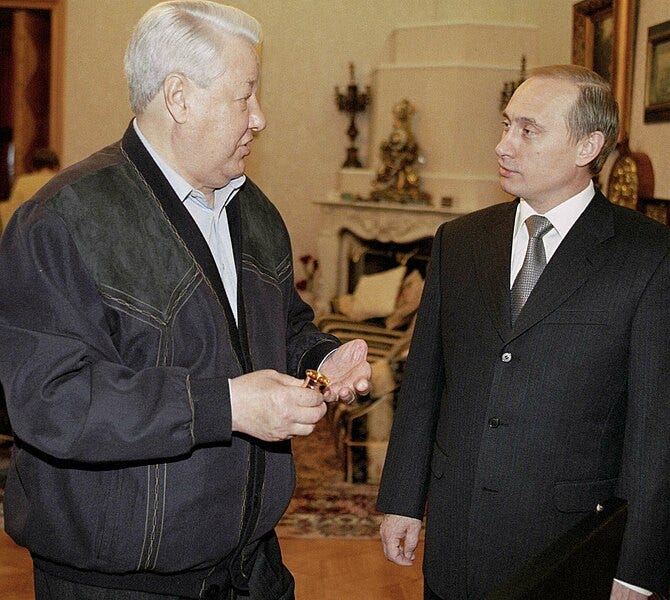What is an Oligarchy?
How 1990s Russia compares to 2020s America

On January 16, in his final planned remarks before leaving office on January 20, U.S. President Joe Biden warned of an "oligarchy" forming. "Today, an oligarchy is taking shape in America of extreme wealth, power and influence that literally threatens our entire democracy, our basic rights and freedoms, and a fair shot for everyone to get ahead," he said, adding that he was "equally concerned about the potential rise of a tech-industrial complex." (The latter remark was an obvious reference to President Dwight Eisenhower's 1961 farewell address, warning of the dangers of a "military-industrial complex.") Subsequently, Google searches for "what is an oligarchy" spiked, according to CNN's Brian Stelter.
While countries such as the Philippines and Saudi Arabia have been labeled as oligarchies, Russia remains one of the most cautionary tales of an oligarchy forming which helped to destroy a democracy. Having studied in and reported from Russia, I have heard from many Russians about how oligarchy made them cynical about democracy, making the rise of Vladimir Putin as an autocrat possible--and even welcomed--by much of the populace.
Here's how it happened: during and after the collapse of the Soviet Union, a number of entrepreneurs sprang up in Russia, and many of them began making money through voucher privatization. Voucher privatization was the process by which ownership in firms owned by the Soviet state was distributed to ordinary citizens, who received vouchers for their share of a company. Given the extreme poverty and mass unemployment after the Soviet collapse, many people sold these vouchers for cash (or a bottle of vodka and a loaf of bread) to these entrepreneurs.
Hence, a new class of businessmen was made rich from buying up vouchers. But they received an even bigger boost when President Boris Yeltsin offered them a sweetheart deal. For the remaining firms that were state-owned -- many of them exporting valuable commodities like oil, gas, and metals -- Yeltsin offered them shares in these firms as collateral in exchange for loans to the state. Since the Russian government was so cash-strapped, it (surprise, surprise) immediately defaulted on these loans and the oligarchs were left owning some of the most valuable firms. The oligarchs, in turn, supported Yeltsin's 1996 reelection bid against a Communist Party candidate because they had an incentive for him to stay in office and let them keep their riches. In a come-from-behind victory, Yeltsin won with their help. Some of these oligarchs played an increasingly large role in what the Russian media dubbed as "The Family," the clique which governed the country as Yeltsin became increasingly incapacitated due to alcoholism and health problems.
However, Vladimir Putin flipped the Yeltsin dynamic: he got the oligarchs to work for him rather than the Russian state working for the oligarchs. In July 2000, Putin offered the oligarchs a deal that they could keep their wealth if they stayed out of politics. Most complied and some remain among Russia's richest men, while others, notably Mikhail Khordokovsky, ran afoul of the deal by funding anti-Putin candidates in Russia's legislature. Khordokovsky was arrested and sent to Siberia for ten years; he now lives in exile.
I keep on thinking of the Putin example amid the slew of tech CEOs that are planning to attend President-elect Donald Trump's inauguration on January 20. Tech executives like Mark Zuckerberg of Meta, and Jeff Bezos of Amazon are giving money to and choosing to attend his inauguration, which is now being held indoors. (Zuckerberg is even throwing a party.)


